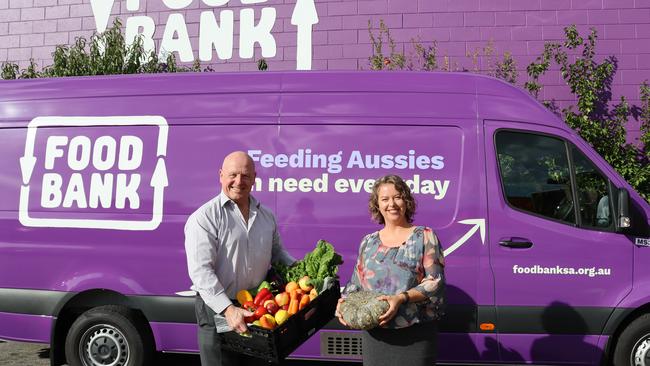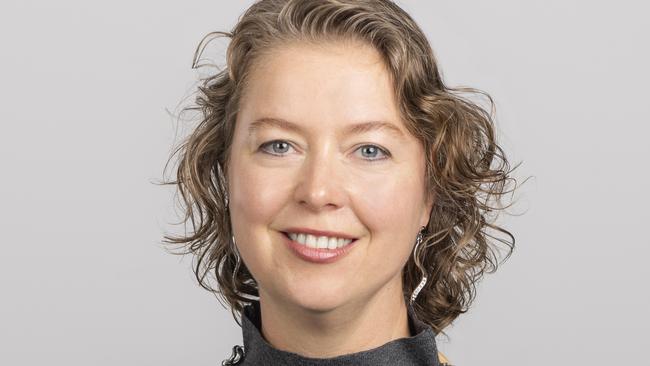Food relief in South Australia – how to improve nutrition and prevent waste
South Australia is renowned for its tremendous food production. So why are so many people going hungry?

Fearless Conversations
Don't miss out on the headlines from Fearless Conversations. Followed categories will be added to My News.
It’s a question that Professor Svetlana Bogomolova, deputy director of Flinders University’s Centre for Social Impact, and her industry and community partners have been seeking answers to collaboratively. With demand for food relief in South Australia rising, her team’s research is focused on improving access to nutritious meals for communities experiencing food insecurity. At the same time, her team is also exploring how to better use harvest surpluses, while reducing green waste.
Having initially worked on a national research program – “Towards Zero Hunger: Improving food relief services in Australia”, a strategic partnership between service providers, policymakers, researchers, volunteers and community members that was co-funded by an Australian Research Council Linkage grant – Professor Bogomolova and her team prepared a blueprint for higher quality service in food relief through improving sector-wide collaboration.
Now Professor Bogomolova has received a $1.05 million Australian Research Council Industry Mid-Career Fellowship, which will drive a new associated project to continue food security research. Key industry partners are Foodbank SA, the largest food relief distributor in South Australia that supplies more than 600 charities, and state government agency Green Industries SA.
The project “Transforming harvest surplus into nutritious meals for food relief” aims to convert surplus fresh food into nutritional meals destined for people most in need. The beauty of the ARC’s Linkage grant and Industry Fellowship is their focus on the needs of industry and making connections across different parts of food systems and social services. “This gives our research the broadest possible scope and reach,” she says, “and it gives industry great confidence in working with researchers. It builds trust, so together we can aim high.”
The project will co-design a social enterprise model to meet food-relief demand for nutritious shelf-stable foods made from fruit and vegetables, by leveraging harvest surplus. It will also create bespoke training and skills development opportunities in all aspects of food production and supply.
“This funding will enable us to continue this good work to help tackle food insecurity in South Australia, building on the initial momentum from our earlier Towards Zero Hunger research. Our past research with partners clearly identified this new area of need, and now we are able to follow through with programs that will provide tools for industry to implement changes to their food distribution practices.”
Professor Bogomolova is confident this important collaboration of research with industry will strike at the heart of an escalating social problem in Australia. Food waste costs the Australian economy $36.6 billion a year, yet a third of all two-parent families and 37 per cent of single-parent families have experienced severe food insecurity in the past year, forcing these families to either skip meals or go whole days without eating.
“Our objective is to interact closely with industry and give them exactly the knowledge they need, co-designing these solutions with them and not for them – and that’s what they find to be very valuable,” Professor Bogomolova says.

This work is one of 23 exciting new research projects at Flinders University which have received major funding during 2023. This includes Professor Jamie Craig who was awarded more than $1.7 million by the National Health and Medical Research Council to explore whether laser technology can prevent vision loss due to glaucoma. This trial will use selective laser trabeculoplasty (SLT), a laser treatment that has been proven to slow disease progression by lowering pressure inside the eye. The trial will determine the effectiveness and suitability of using SLT as an early intervention to prevent the onset of vision loss from glaucoma.
Other big funding winners are Professor Amy Roberts receiving a $1.13 million Australian Research Council grant to research Indigenous knowledges, lifeways and colonial legacies; visiting researcher Professor Rene Koenigs receiving a $1.15 million Australian Research Council grant to investigate sunlight as a renewable energy source for carbon-hydrogen reactions for applications ranging from the production of pharmaceuticals to OLED TV sets; Associate Professor Anna Ziersch receiving $800,000 for a Medical Research Future Fund project to develop a framework for improved mental health for young refugees, and Dr Liam Brady receiving an $804,000 Australian Research Council grant to investigate the archaeological values of Marra cultural heritage sites in central Queensland.
These and other grants underpin Flinders University’ continued strong growth in research performance that has seen the university climb 42 places in the latest Academic Ranking of World Universities (ARWU) to 368, and an impressive rise in QS World University Rankings 2024.


